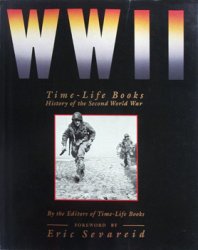Changes in the manufacturing, processing, and distribution of goods and services fundamentally altered the nation’s food supply and the way in which food was prepared. Gone were the days when food was grown, cultivated, and sold locally. By the first decade of the 20th century, much of the food supply for urban America was grown at some distance, shipped in bulk, and sold at markets or grocery stores. Food producers learned lessons from the automobile industry and increasingly began producing food in mass quantities. This food was then shipped in newly designed, refrigerated train cars and trucks. Technological innovations also allowed food manufacturers to produce canned goods. These innovations came with mixed blessings. The price of food declined steadily while the supply and variety of food increased substantially. However, because it was largely unregulated, the quality of the nation’s food supply declined as food purity frequently took a back seat to reducing costs.
The alarming conditions of food production were first exposed in muckraking journalist UPTON Sinclair’s The Jungle (1906). In 1904, Sinclair was commissioned to investigate the living and working conditions of the largely foreign-born workers in the Chicago meatpacking industry.
What Sinclair found was published in his book The Jungle. Sinclair’s intent had been both to alert the public to the appalling lack of sanitation and to expose the low wages, hazardous working conditions, and substandard living conditions of the Chicago stockyard workers and their families. Although Sinclair would later complain, “I aimed at the public’s heart and by accident I hit it in the stomach,” The Jungle had a tremendous impact on an already wary public.
Concern about drug abuse and the purity of food products had been mounting since the 1890s. Dr. Harvey Wiley, the head of the Department of Agriculture, formed a “poison squad” to test food for chemical additives; and the American Medical Association, concerned that pharmaceutical drugs were being mislabeled and sold as health tonics, lobbied for the introduction of strict federal oversight. Intense lobbying on the part of progressive reformers and the medical community along with growing public concern prompted President Theodore Roosevelt to order investigations into the meatpacking and pharmaceutical industries. These investigations resulted in the passage of the Meat Inspection Act (1906) and the Pure Food and Drug Act (1906). The Pure Food and Drug Act established strict controls on food and drug labeling and placed oversight responsibility with the Department of Labor, the Department of Agriculture, and the Department of the Treasury. The act has been extended and strengthened numerous times since 1906, most notably in 1938 when the Food and Drug Administration was created.
Further reading: Lorine Goodwin, The Pure Food, Drink, and Drug Crusaders, 1879-1914 (Jefferson, N. C.: McFarland, 1999); Upton Sinclair, The Jungle (Urbana: University of Illinois Press, 1988).
—Robert Gordon




 World History
World History









